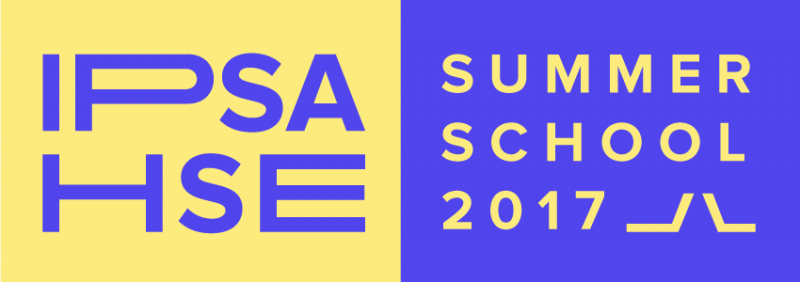

1st IPSA-HSE Summer School on Concepts, Methods & Techniques of Political Science
Publication date: Mon, 02 Oct 2017

The first annual IPSA-HSE Summer School on Concepts, Methods and Techniques of Political Science was presented at the Higher School of Economics’ Management Training Center in Pushkin, St. Petersburg (Russia) from July 30 to August 13, 2017. The school was jointly organized by the International Political Science Association (IPSA) and National Research University Higher School of Economics, with support from the Friedrich Ebert Foundation and the U.S. Consulate General in St. Petersburg.
The school’s mission is to develop student competencies, specifically in the use of modern methods of political science to advance political and social research, and to promote further cooperation within the global political research community. Overall, the School drew 24 students from eight countries, most of whom were PhD students and young researchers.
Six one-week courses on methods were offered. Instructors included Prof. Dirk-Berg-Schlosser (Philipps University of Margburg, Germany), Prof. Werner Patzelt (Dresden University of Technology, Germany), Prof. Cameron Thies (Arizona State University, U.S.), and Professors Eduard Ponarin and Boris Sokolov (HSE, Russia). Students were given a chance to take one or two courses in quantitative and qualitative research methods, with courses on qualitative comparative analysis and case study proving to be the most popular this year.
All students received a certificate of attendance and a transcript of records with ETCS (one credit for each course), and all had an opportunity to master their research skills. The school schedule was quite intense, with lectures before lunch and study groups in the afternoon.
Over and above the general program, students participated in four workshops under the aegis of the Friedrich Ebert Foundation, broadly titled “Hybrid Regimes Era: Social and Political Transformations in Post-Authoritarian Societies.” Prominent scholars and experts were invited to share ideas on issues of authoritarian modernization, digital technologies and media development, and historical legacies. Guest speakers included Prof. Vladimir Gel’man (University of Helsinki, Finland), Prof. Alexander Libman (University of Munich, Germany), Prof. Indra Overland (Norwegian Institute for Foreign Affairs, Norway), Artem Filatov (Echo of Moscow radio) and Mikhail Tyurkin (Rosbalt news agency).
Courses were given at the HSE Management Training Centre in Pushkin, a picturesque town near St. Petersburg. Students and experts learned about Russia’s cultural heritage by visiting the famous Catherine Palace and its Amber Room, as well as other attractions, including the Hermitage. Two sightseeing bus tours of the city centre were organized for participants.











